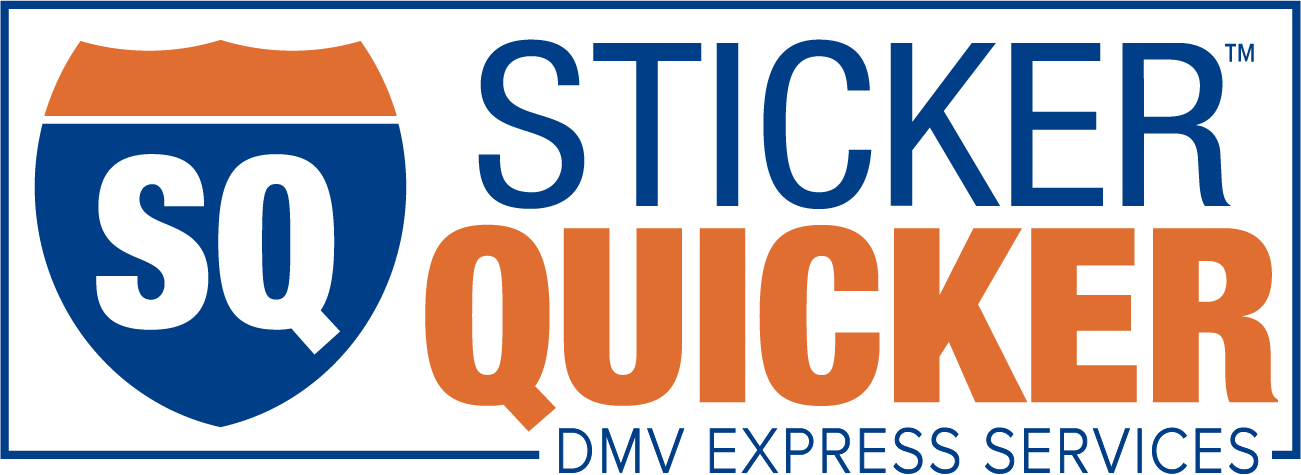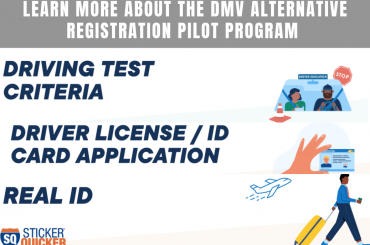Registration fees are inevitable in vehicle ownership, but have you ever wondered why they can sometimes be high? Understanding the factors that contribute to these fees can help shed light on why they vary from state to state and vehicle to vehicle. We’re going to provide you with the knowledge necessary to make informed decisions when it comes to budgeting for vehicle ownership.
What Are Registration Fees For?
Registration fees are an essential component of maintaining a well-functioning transportation system. These fees serve several important purposes that benefit both drivers and the community. Registration fees contribute to funding road and infrastructure maintenance, ensuring that our roadways remain safe and in good condition. By investing in repairs and upkeep, registration fees help prevent accidents and ensure a smooth driving experience for all. These fees often support initiatives to improve public transportation, reduce congestion, promote sustainable modes of travel, and fund driver educational programs.
Registration fees play a vital role in supporting and enhancing our transportation system, ultimately contributing to safer, more efficient, and sustainable mobility for everyone.
Why Are Registration Fees Increasing
California is currently considering a new bill, Assembly Bill 251, which proposes higher auto registration fees for trucks and SUVs based on their weight. The bill, introduced by Assemblyman Chris Ward, aims to address concerns regarding the relationship between vehicle weight and injuries to vulnerable road users like pedestrians and cyclists. It also seeks to evaluate the costs and benefits of implementing a passenger vehicle weight fee that would contribute to street safety and improvement projects.
Assembly Bill 251 proposes the establishment of a task force by the California Transportation Commission (CTC) to conduct a comprehensive study. This study would investigate the potential revenue generated by the weight fee, examine appropriate weight limits for implementation, and assess the impact on reducing fatal or severe accidents caused by heavier SUVs and trucks.
Support for Assembly Bill 251 has been garnered from car accident victim organizations and networks, who believe that the bill has the potential to save lives. However, it’s important to note that the bill, if passed, would not immediately enforce a weight fee but could influence the Department of Motor Vehicles (DMV) or other state officials to consider its implementation in the future.
14 other states and the District of Columbia have already implemented weight fees for vehicle registrations, with fees ranging from $25 to $500 annually. If the bill passes and subsequently influences the adoption of a weight fee, California will join the ranks of these states in taking steps towards addressing the issue of vehicle weight and promoting road safety.
What Impacts The Cost Of Your Registration Fees?
Car ownership encompasses various expenses beyond the initial purchase price. Several factors can influence the amount of your registration fee. Understanding what contributions play a role in your registration fees, along with the fee of registration alone.
Vehicle Price
The valuation of your vehicle is a primary determinant when it comes to car registration fees. Owning a high-value car translates to a higher fee compared to vehicles of lower value. Essentially, the registration fee increases proportionally with the value of the vehicle. In simpler terms, the more valuable your car is, the greater the registration fee you will be required to pay.
Type of Vehicle
Registering a vehicle in California varies depending on the type of registration required. While this car registration fee in California guide primarily focuses on the registration of cars, it is important to note that separate and unique registration processes exist for motorcycles, custom-built cars, special vehicles, and off-highway vehicles. Each category has its own set of guidelines and requirements to ensure compliance with state regulations. By understanding the specific registration requirements for your vehicle type, you can navigate the process more efficiently and ensure that your vehicle is properly registered in accordance with California law.
Insurance Company
The choice of your car insurance provider can also influence the registration fee you pay. In California, having valid and reliable insurance coverage is a legal requirement for driving a car. If your vehicle is not insured by a reputable company that meets the necessary criteria, the registration authority may impose a higher fee for car registration. It is important to ensure that your insurance provider is recognized and authorized to provide vehicle coverage to avoid additional costs when registering your car.
License Plate
A license plate typically accounts for approximately 0.65% of the car’s value, but acquiring a license plate involves additional expenses. This is due to the requirements set by the registration authority, which mandates the use of up-to-date license plates. Furthermore, the license plates must display a current registration sticker to prevent the fraudulent use of counterfeit stickers. As a result, obtaining a license plate incurs additional costs.
How/Where You Purchased Your Car
The procedure for registering your vehicle and completing the registration fee payment can differ based on the method of purchase and the source from which you obtained the vehicle. The registration process varies depending on whether you purchased the car from a private party, such as through online platforms like Facebook Marketplace, Craigslist, or newspaper advertisements, or if you bought it from a licensed dealership.
Adding to the complexity, there are separate procedures for converting a “non-transferable” registration to a “transferable” one in California. These distinctions emphasize the importance of understanding the specific requirements and processes associated with your vehicle’s purchase source and location to ensure a smooth and accurate registration process.
Online Registration Fees
We understand the value of your time, which is why we have simplified the DMV procedures, ensuring that your concerns are resolved in less than 5 minutes.
As an added benefit, when you use Sticker Quicker, you will receive a complimentary instant electronic copy of your registration immediately after completing your transaction. This electronic copy serves as a convenient backup in case your physical registration is lost, damaged, or stolen. Rest assured, Sticker Quicker is here to promptly replace this vital document, providing you with the necessary proof of ownership for your vehicle.
Understanding registration fees and the factors influencing their increase in California and other states is essential for all vehicle owners. Various components impact registration fees, including the value of the car, insurance coverage, and the type of vehicle being registered. By staying informed about registration fees, individuals can better plan for the financial aspects of car ownership. As responsible vehicle owners, being knowledgeable about registration fees empowers us to make informed decisions and effectively manage our automotive expenses.
Here at Sticker Quicker, we offer a convenient solution for efficiently handling your vehicle registration, license plates, and sticker needs. Our streamlined process allows you to easily renew, transfer, or replace these essential documents on the same day.
Works Cited:
https://www.carshtuff.com/post/car-registration-expensive-california
https://www.dmv.ca.gov/portal/vehicle-registration/registration-fees/
https://www.dmv.ca.gov/portal/dmv-virtual-office/
https://www.moneytaskforce.com/taxes/why-is-car-registration-so-expensive-in-california/
https://www.insurancenavy.com/california-car-registration-fees/






